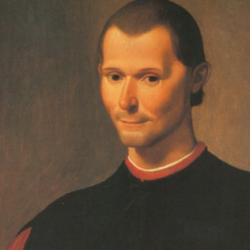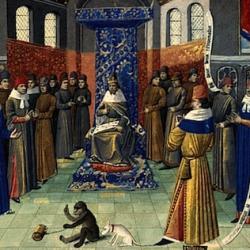Despite its claims to the contrary, Patrick Deneen writes in a 2014 piece in The American Conservative, “liberalism was never about ‘limited’ government” or curbing absolutism. Rather, liberalism is about “the pursuit and exercise of potentially limitless power toward seemingly ‘limited’ ends of securing Rights.”
The limitation on liberal government is the limitation of its ends: “securing rights, and general non-interference in influencing people’s various ‘pursuits.’” But these ends “necessarily becomes expansive.” This is true because “liberal government aims to expand the range of human power—the power over nature in particular.” In Deneen’s view, “the power of the government and the project of mastering nature necessarily increase together. The ‘sphere of liberty’ does not remain static, but expands as various forms of mastery increase—mobility, economic prosperity, opportunity.” In short, “the ‘ends’ of government are in one sense limited—the securing of rights—yet effectively unlimited, inasmuch as the ‘securing of rights’ necessarily involves ever-increasing power.
The very notion of “rights” encourages government expansion: “A liberal society and its laws are committed to expanding wealth, mobility, opportunity, health, even longevity. If it cannot guarantee equal outcomes, it must nevertheless provide a baseline of support for the ‘race of life.’ This will extend to increasing activity in every realm of life—the rearing of children, the health of the citizenry, the ongoing education of citizens, the expansion of areas where the ‘conquest of nature’ can proceed—eventually, full-throated support for ‘STEM’ and the denigration of impractical activities like ‘Art History.’” These are not overreaches, but part of the natural growth of liberal order.
Even the apparently more circumscribed task of “securing” rights increases the scope of government: “Fortune, contingency, and accident inevitably distributes unequally opportunities by which people can ‘pursue happiness’ or enjoy ‘liberty,’ or expect a reasonably long ‘life.’” The negative liberty of non-interference is never enough, and was never thought to be enough: “from the very outset of liberal theory was understood to have a positive duty to expand its activities to allow for the positive enjoyment of one’s rights to ‘life, liberty and the pursuit of happiness.’”
Liberalism is genuinely limited in one respect: It must avoid all “preference or support for any particular ‘way of life.’” Yet Deneen argues that this refusal to aim at positive ends is another dynamic that expands liberal government’s realm of action. He argues that “a polity that is oriented to supporting human flourishing based upon an unchanging standard—such as the natural law [or, the glory of God—PJL]—cannot alter that end, under which it is itself governed and limited.” Under liberal order, though, there are an infinite array of possible modes of flourishing, and government can do nothing to channel citizens toward particular ends or encourage one life-option over another. As people experiment with more and more ways of living, liberal government is committed to securing their right to stay on the path of their choice, and that, once again, expands the scope of government’s jurisdiction.
As John Locke put it, “a good prince, who is mindful of the trust put into his hands, and careful of the good of his people, cannot have too much prerogative, that is, power to do good.”















